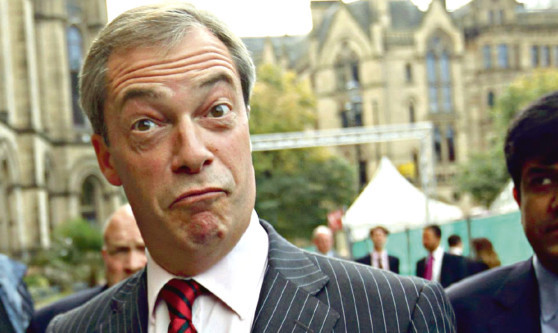
Plenty of talk about but nothing’s really changed.
If the political year in 2012 was marked by silliness think nonsense episodes like the pasty tax, Boris Johnson stuck on an Olympic zipwire, Jeremy Hunt getting promoted then 2013 has been a year of bafflement.
There’s been no lack of politics, but what’s been absent is any movement in the polls and that has confounded all sides.
Just 12 months ago the Lib Dems were a barely-twitching political corpse. Then the Eastleigh by-election pumped life back into Lib Dem veins.
A by-election in a tight seat triggered by the sitting MP, former Energy Secretary Chris Huhne, going to jail and contested by candidate Mike Thornton as substantial as one of the confections from the sweet shop chain with which he shares his name didn’t look hopeful.
Yet Thornton won and proved true what until then had only been theory that in seats where they were incumbent and had a strong local party the Lib Dems could win. It didn’t do them any good in the polls, though. They are still only scraping into double figures.
Meanwhile, Labour have remained out in front all year. Ed Miliband had the Tories on the ropes in the spring, then went awol in the summer, only to catapult himself back into contention with another remarkable conference speech.
Up or down in the eyes of the commentariat, the Labour lead in the polls didn’t budge.
Miliband’s conference address this year differed from last year’s effort in a lack of jokes about dinosaurs and the existence of an actual policy the freeze in energy prices. It was a stroke of political genius which the Tories have spent the weeks since struggling to come to terms with or counter. But to add to the general befuddlement, although the freeze is regarded as a popular policy it didn’t provide Labour with a killer bounce in the polls.
In an attempt to close the gap stubborn at around 8% the Conservatives confused things further by resorting to stealing Labour policies at the end of the year such as the cap on payday loans and backing plain cigarette packaging.
Apparently when it came to Opposition ideas Tories were said to be happy to “take the steak and leave the gristle”. It’s an interesting analogy.
Imagine going out for a fine steak dinner only for the chef from the restaurant next door to keep coming in and shouting: “I made that. Apart from the rubbish bits which I didn’t.”
And it suggests Conservatives consider Labour’s fairly thin fare to be akin to a juicy steak.
But then the Tories are relying on just the smells from the kitchen to tempt voters. Their line is that the economy is turning the corner and only if they are left at the cooker controls will something satisfying emerge.
Let Labour in and Ed Balls won’t just rustle up one of his legendary lasagnes instead he’ll blow up the microwave and the Tory fire brigade will have to come back to clear up his mess.
It’s perhaps because the main parties are engaged in an unseemly food fight that the only party to see their poll rating rise in 2013 has been Ukip.
All Nigel Farage’s madcap crew serve up is fruitcakes. Witness the implosion earlier this year of Godfrey Bloom, who combined racism, sexism and physical violence in his departure from the party.
Yet the electorate seem to have got such a taste for Ukip that Farage’s prediction they can win the Euro elections in May 2014 is not outrageous unlike some of their candidates’ opinions. Farage claims it would cause a political earthquake.
If the mainstream parties have been confused by the opinion polls in 2013, such a result in the first actual election of 2014 will leave them downright discombobulated.

Enjoy the convenience of having The Sunday Post delivered as a digital ePaper straight to your smartphone, tablet or computer.
Subscribe for only £5.49 a month and enjoy all the benefits of the printed paper as a digital replica.
Subscribe